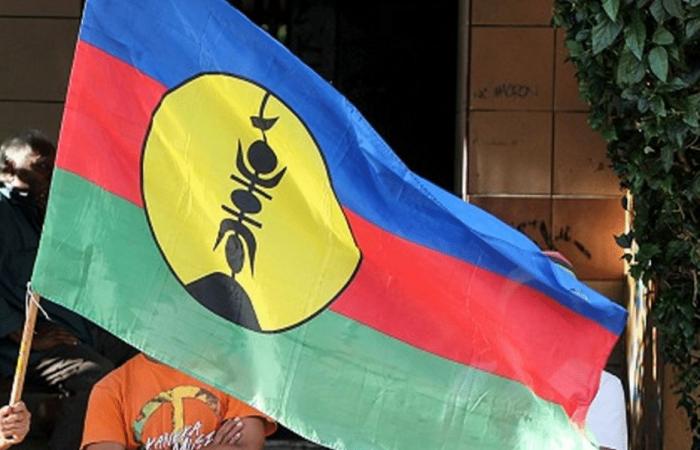The Progressive Union of Melanesia (UPM) and the Kanak Liberation Party (Palika) are holding their respective congresses on November 9 and 10. They could consider leaving the FLNKS to carry out, through the National Union for Independence, a project of “shared sovereignty.”
Will the rupture noted during the FLNKS congress in Koumac be finalized this weekend? In any case, the option of a departure from the front is on the table, whether on the side of Poum, where the 41st is held.e congress of the UPM, or Kaala Gomen, where the Palika activists are gathered for the 49e annual meeting of the movement.
At the end of August, both the Palika and the UPM did not go to Koumac, due to a disagreement on the agenda with the Caledonian Union and the Oceanian Democratic Rally. Although consensus between the 4 components of the front is the rule for any decision, the UC and the RDO had decided to maintain the congress, which saw the integration within the front of the CCAT and the nationalists (Labor Party, Southern Unitary Dynamics, etc.), as well as the appointment of Christian Tein to the post of president of the FLNKS.
Since then, neither the UPM nor the Palika no longer participate in the weekly meetings of the FLNKS, and if the Caledonian Union is currently responsible for leading the front (rotating every three months between the different components), it is in instead of the UPM, which did not take over from the RDO on 1is October as it should have.
The two groups must decide this weekend whether or not to leave the FLNKS but on the Palika side, we believe today to be free of any commitment: “We had not been invited to this congress, for its part it assures Judicaël Selefen, one of the Palika spokespersons. And we said that we were not concerned by the decisions that were taken there. The important thing for us today is to know how we follow the political support of our fight, the achievement of independence.”
“We left the FLNKS tool aside a bit, assumes for his part Victor Tutugoro, the president of the UPM. Of course, returning is an option. But we favor another, which is to make the UNI an alternative.” The two movements have in fact been members for 25 years of this electoral coalition born in 1999 to counter the growing influence of the Caledonian Union. It is also under this banner that UPM and Palika sit in the congress. “Why do we say “the UNI, rather than the FLNKS”? Because it was the FLNKS that broke everything. And so, if we want to rebuild not only the country's economy but also to build the future, we must send a message of confidence to non-independence people and to all other citizens to build our country. For the UPM, the FLNKS, which has pledged its most radical line by integrating the CCAT, is no longer capable of uniting beyond its own camp.
Why do we say “the UNI, rather than the FLNKS”? Because it was the FLNKS that broke everything.
Victor Tutugoro, president of the UPM
“The events of May 13 certainly drew a line between two types of independence project”points out Judicaël Selefen. “Full and complete” sovereignty for some, “shared sovereignty” for others, the different currents of the FLNKS are divided on the question.
Scalded by a “post-referendum” sequence, marked since 2021 by reversals on the participation or not of independence delegations in the negotiations which ended up eclipsing the substance, the Palika does not want to miss the train of the discussions to come. “In the absence of clarification, we are committed to carrying out a project in a clear and precise manner, on which we have positioned ourselves since 2013, the independence association”indicates Judicaël Selefen. With a stated desire to convince beyond the independence electorate: “We are only repeating an exit hypothesis that the State has proposed to us, but it is up to us to nourish this partnership, what do we want, what do we not want? ? Where does it start, where does it end? This is the exercise that we will have to do with all Caledonians, so we invite people to tell us their fears and fears, as well as their expectations.”
“It’s up to us to nurture this project of independence with partnership. What do we want, what do we not want? Where does it begin, where does it end? the exercise that we will have to do with all Caledonians.”
Judicaël Selefen, spokesperson for Palika
In Poum, the UPM will discuss in a workshop another highlight of recent months: the growing place taken by customary representatives in the political sphere. “We see what is happening with Inaat Ne Kanaky and the great chief Hippolyte Sinewami who went to speak before the UN, who declared sovereignty over his lands, that raises questions,” believes Victor Tutugoro, also worried about the slump in which the economy finds itself: “We have hit rock bottom. Without a functioning economy, there is no political stability. Look at Haiti, Sudan. We have to rebuild. Otherwise there is no future.”
The activists should decide on leaving the front by Sunday evening and their decision is eagerly awaited by the FLNKS. According to our information, thehe front congress announced for the end of November could be postponed until December, or even January. Time to digest the new situation.






